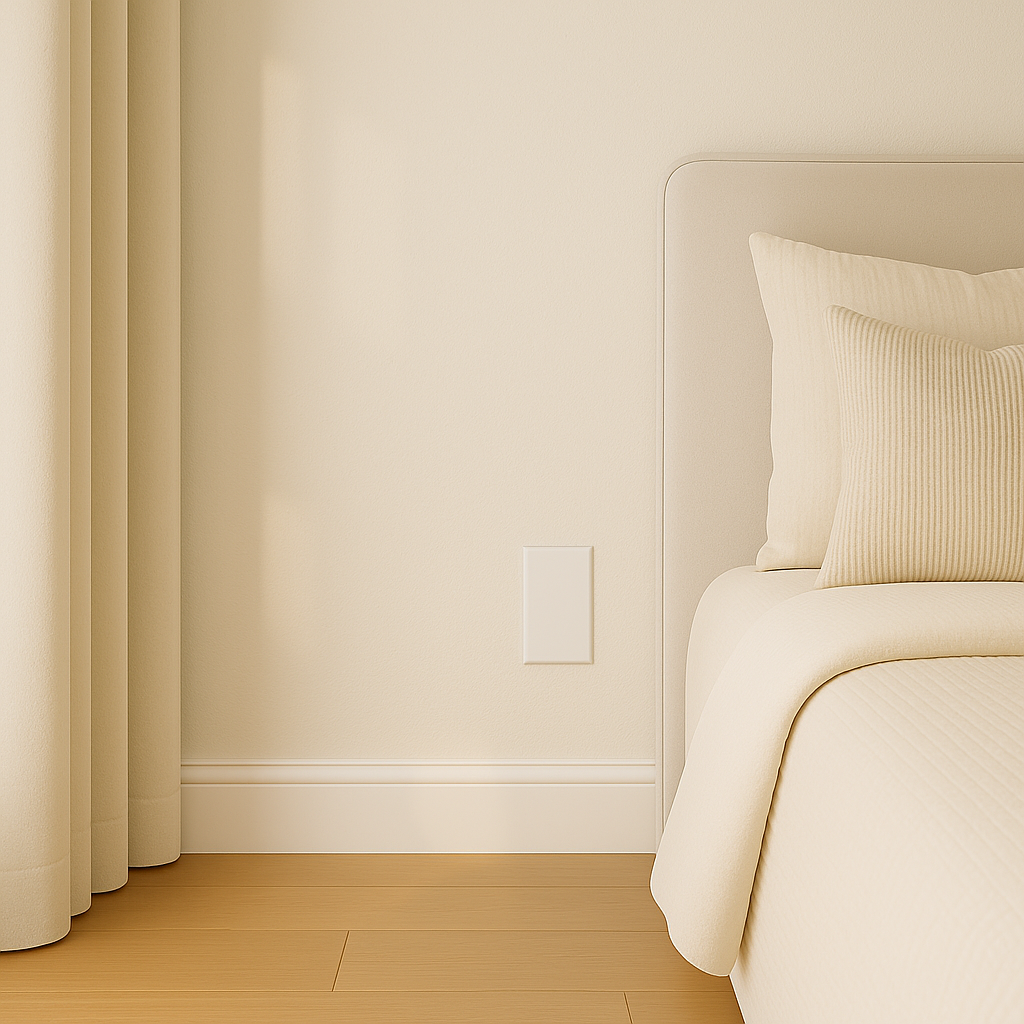Rest Easy. Live Protected.
What Science Says About Nighttime EMF Exposure
For decades, medical researchers and professional associations have investigated potential impacts of electromagnetic fields (EMFs) on human health. Sleep is one of the most sensitive times for the body to repair and regenerate — and studies have reported associations between nighttime EMF exposure and sleep-related complaints. Here’s what the science says:
Sleep problems are the #1 complaint from people reporting EMF exposure.
“Sleep disorders (58%), headaches (41%), nervousness or distress (19%), fatigue (18%), and concentration difficulties (16%) were most common complaints. Complainants related their symptoms most frequently to exposure to mobile phone base stations (74%), followed by mobile phones (36%), cordless phones (29%) and power lines (27%).”
— Röösli et al., International Journal of Hygiene and Environmental Health, 2004
Medical guidelines recommend reducing bedroom EMFs at night.
“Based on documented cases, it is useful to recommend that patients take certain measures… which may lead to an alleviation of health problems within days or weeks. Such measures include… disconnecting the power supply in the bedroom (switching off the fuse) while sleeping.”
— Austrian Medical Association Guideline on EMF Syndrome, 2012
Electrosensitivity is officially recognized in some countries.
“In Sweden, EMF syndrome is designated as electrohypersensitivity (EHS), considered a physical impairment and recognized as a disability… Some hospitals in Sweden provide rooms with low EMF exposure.”
— Austrian Medical Association Guideline, 2012
Sleeping areas are considered the most critical zone for EMF protection.
“The Building Biology Evaluation Guidelines are specifically designed for sleeping areas associated with long-term risks and a most sensitive window of opportunity for regeneration… Severe anomaly values are not acceptable and call for action.”
— Standard of Building Biology Testing Methods (SBM-2015)
EMF exposure has been linked to biological stress reactions.
“Several mechanisms of interaction are possible. A plausible mechanism… is interaction via the formation of free radicals or oxidative and nitrosative stress. Peroxynitrite damages a large number of essential metabolic processes and cell components.”
— Austrian Medical Association Guideline, 2012
Patients often report relief when reducing EMF sources at night.
“Two thirds of complainants had taken some action to reduce their symptoms. The most common measure was to avoid exposure if possible. Removing or disconnecting indoor sources was judged to be the most effective action.”
— Röösli et al., International Journal of Hygiene and Environmental Health, 2004
How Dream Shield Helps
Research and medical guidelines suggest that lowering EMF exposure in the bedroom may support better rest and reduce stress-related complaints in sensitive individuals. Dream Shield is designed to help you create a lower-EMF sleep environment by shielding outlets near your bed, in line with precautionary recommendations from international experts.
Disclaimer: These statements have not been evaluated by the FDA. Dream Shield is not intended to diagnose, treat, cure, or prevent any disease.
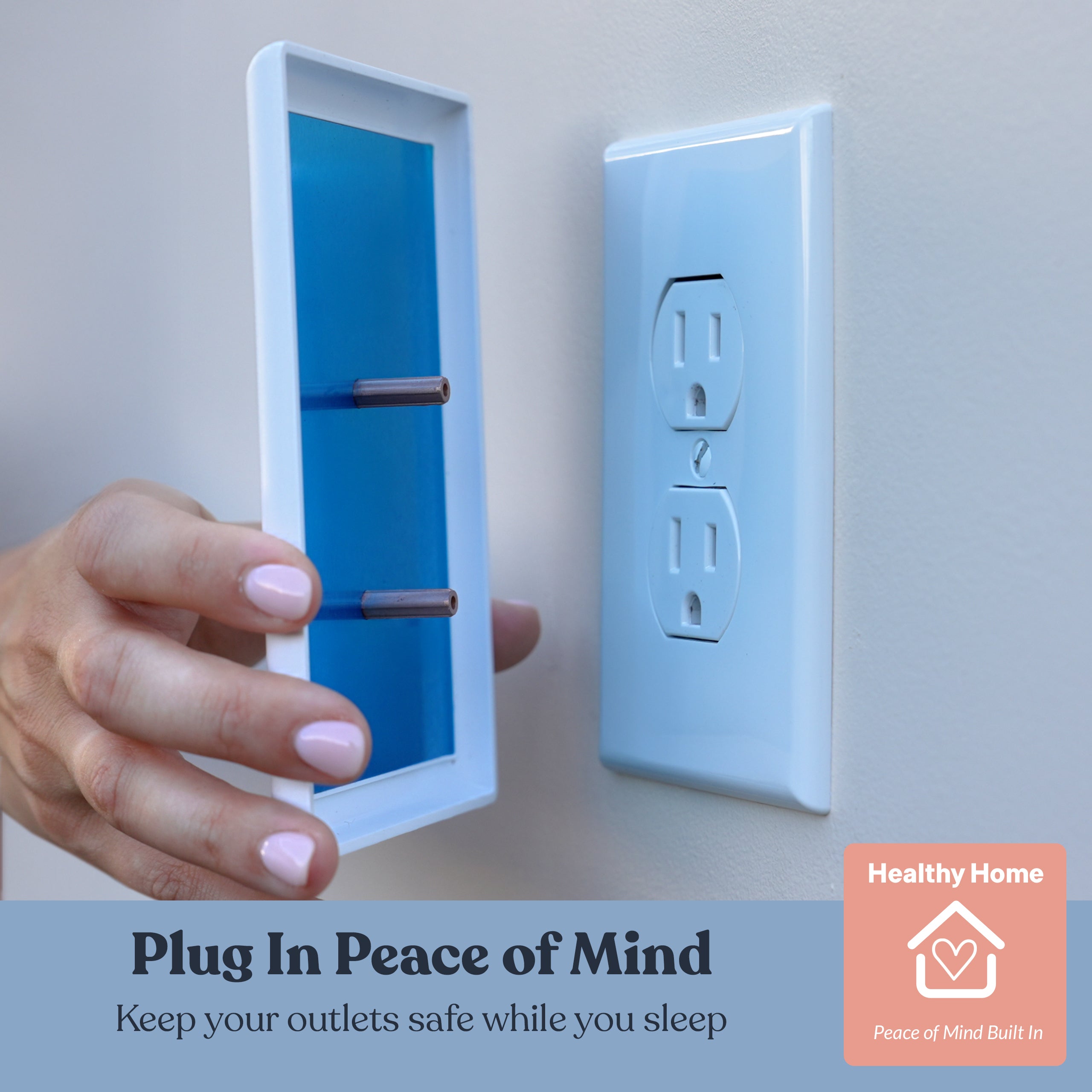
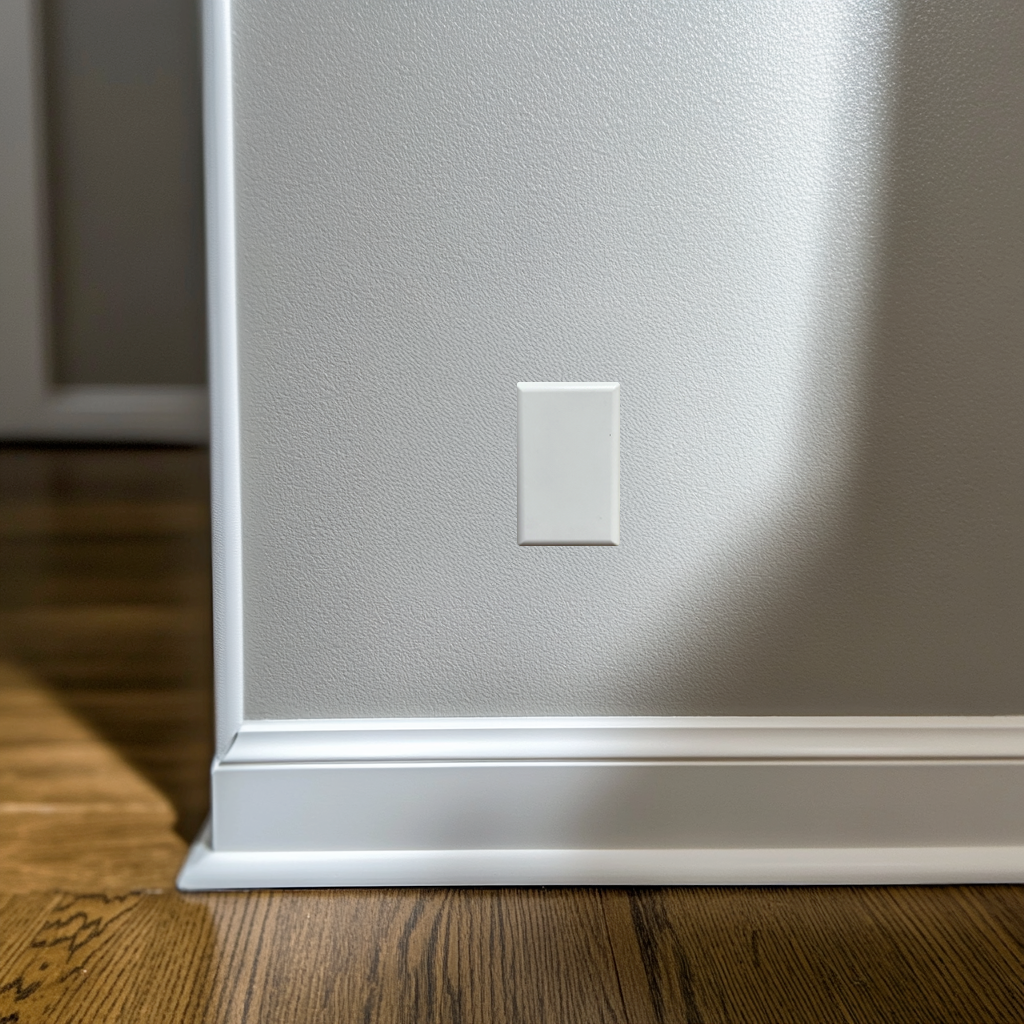
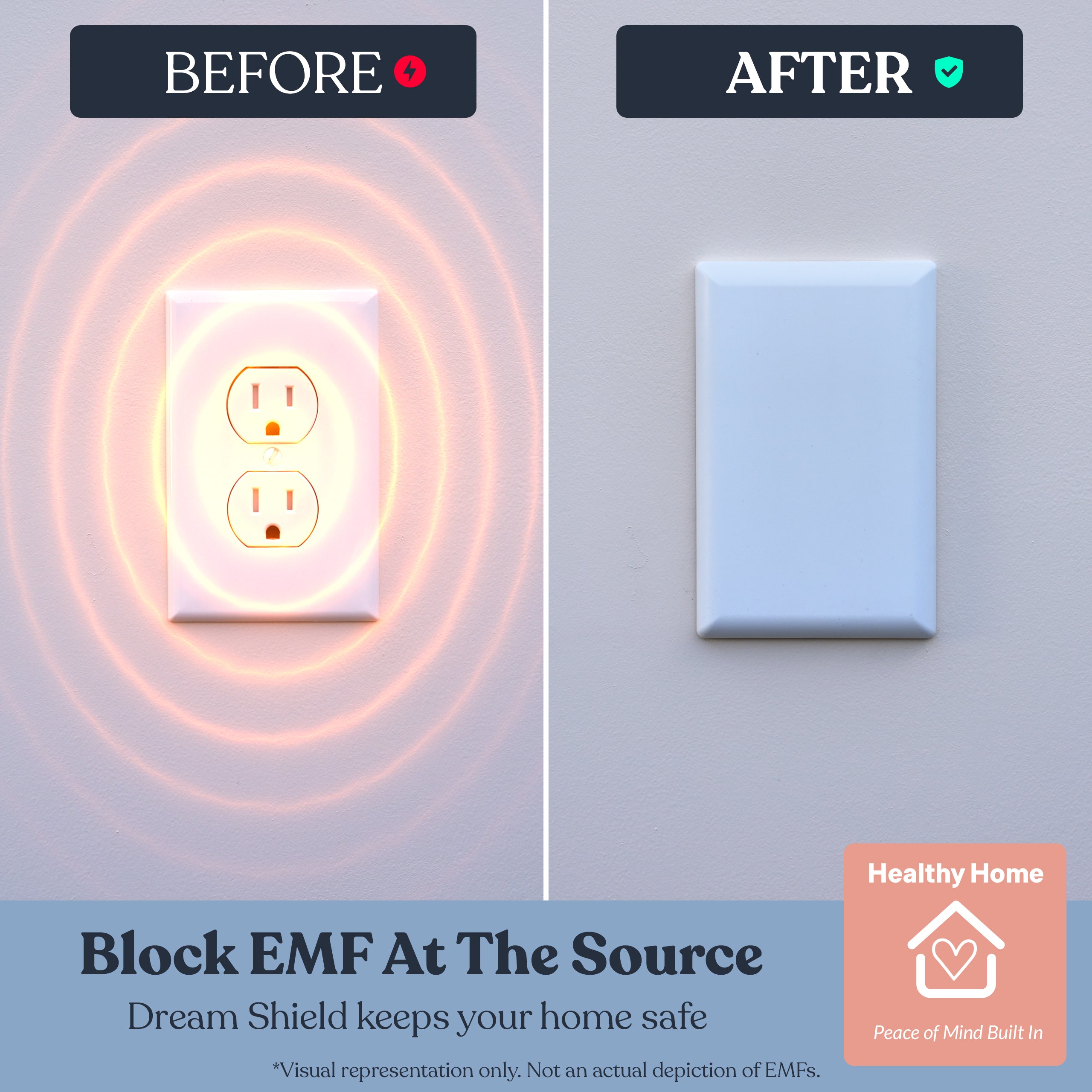
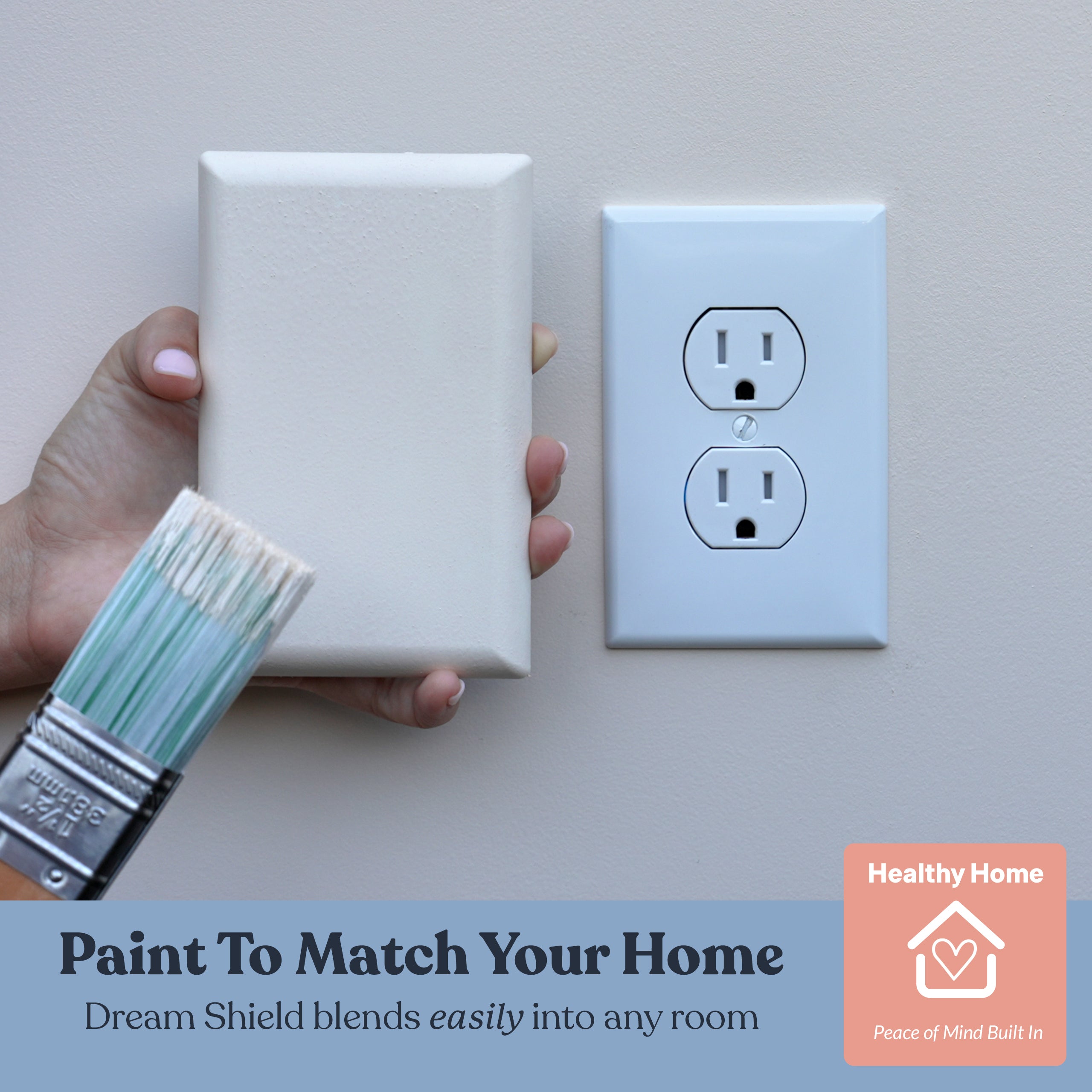
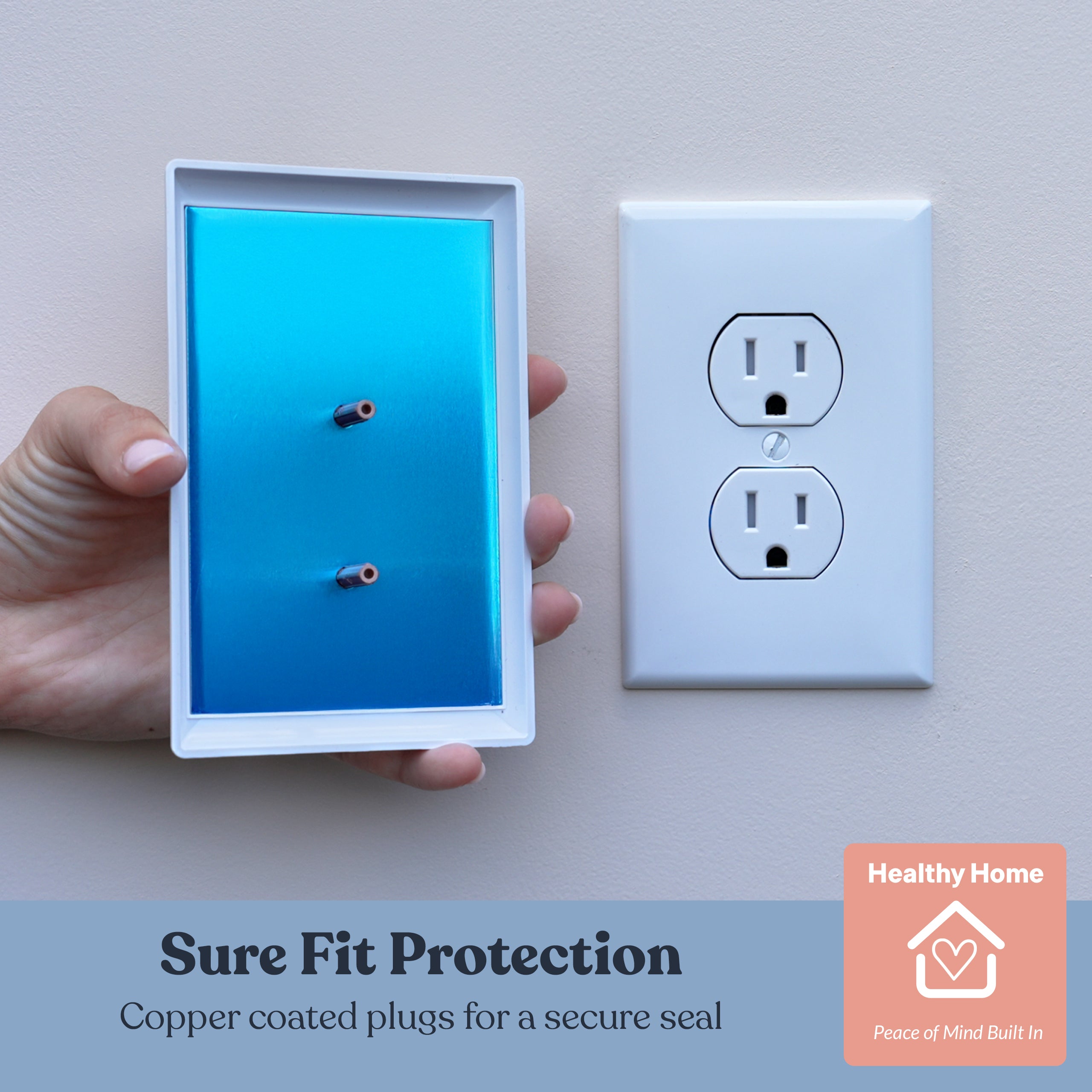
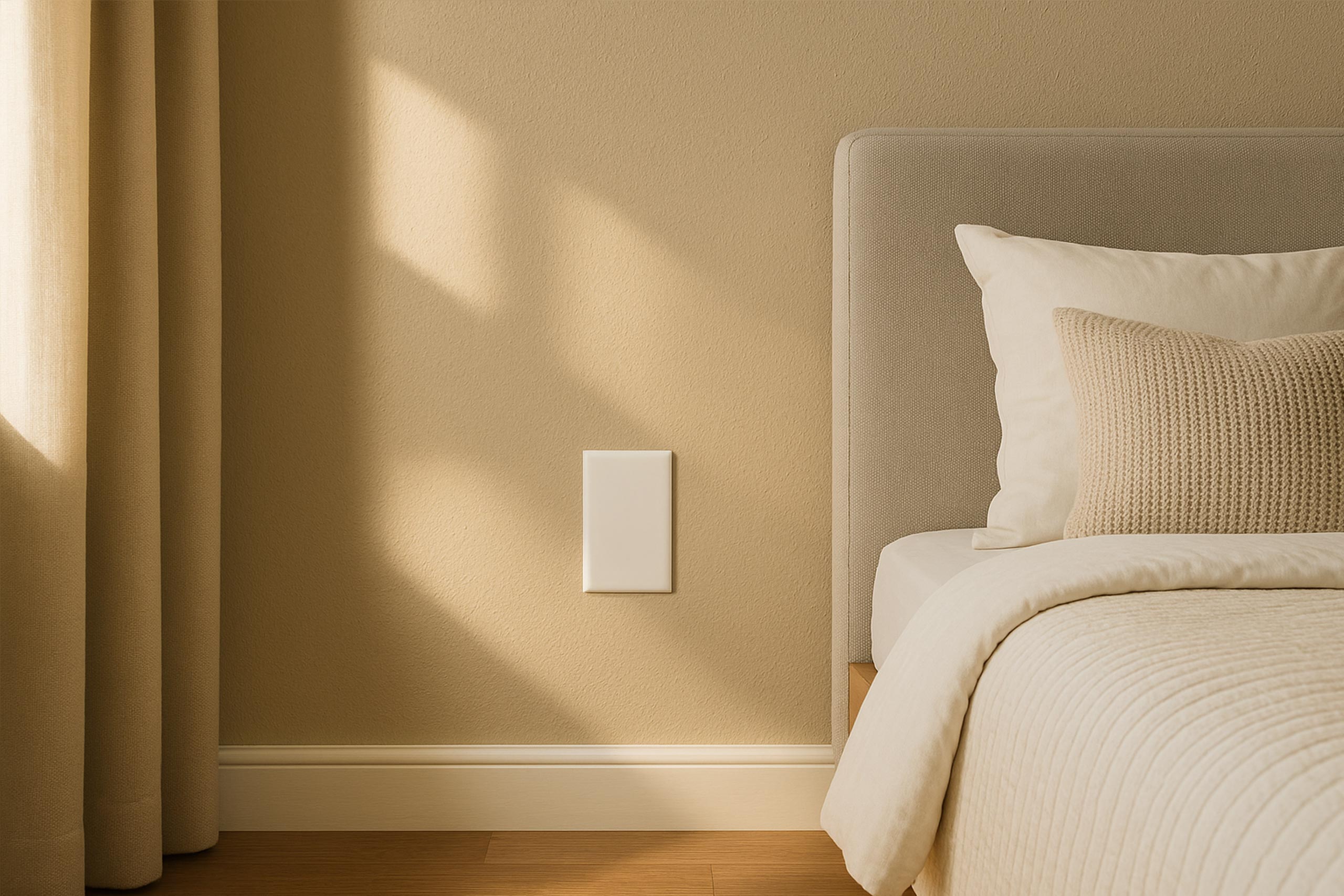
Dream Shield™ EMF Outlet Protector (2-Pack)
- Designed for Sleep & Workspaces: Ideal for blocking EMF from outlets near your bed or desk, where exposure is highest.
- Sleep Safe: Prevent EMF emissions from outlets near your head or your children's head while you rest.
- Tool-Free Installation: Plugs easily into any standard outlet for quick EMF protection.
- Non-Intrusive Design: Maintains the aesthetics of your room while providing essential safety.
- Continuous Protection: No need for power or maintenance; works passively to block EMFs 24/7.
- Perfect for Bedrooms & Offices: Essential protection for high-usage areas like bedrooms, kids’ rooms, and home offices.
Rest Assured
The Simplest EMF Defense
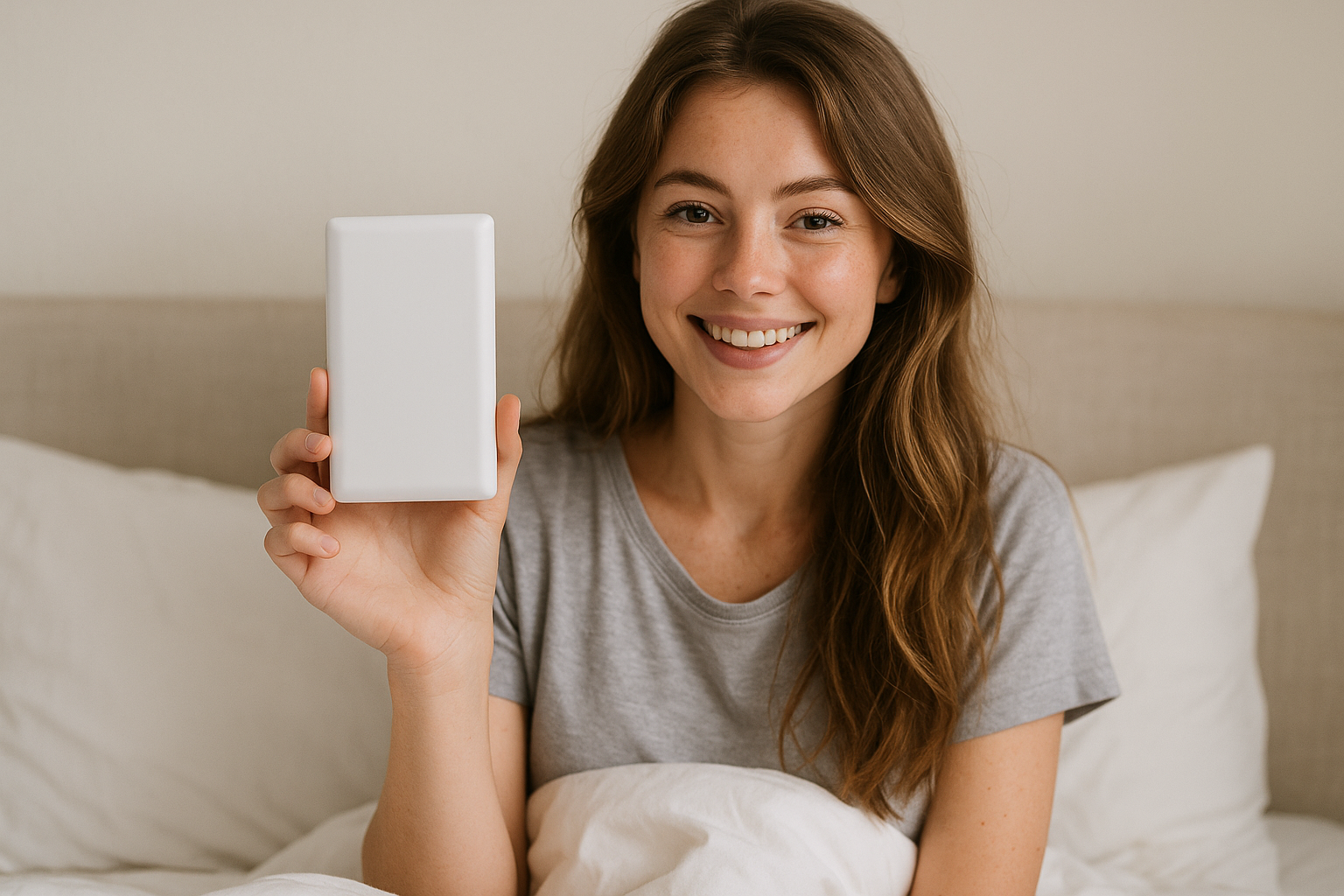
Before image
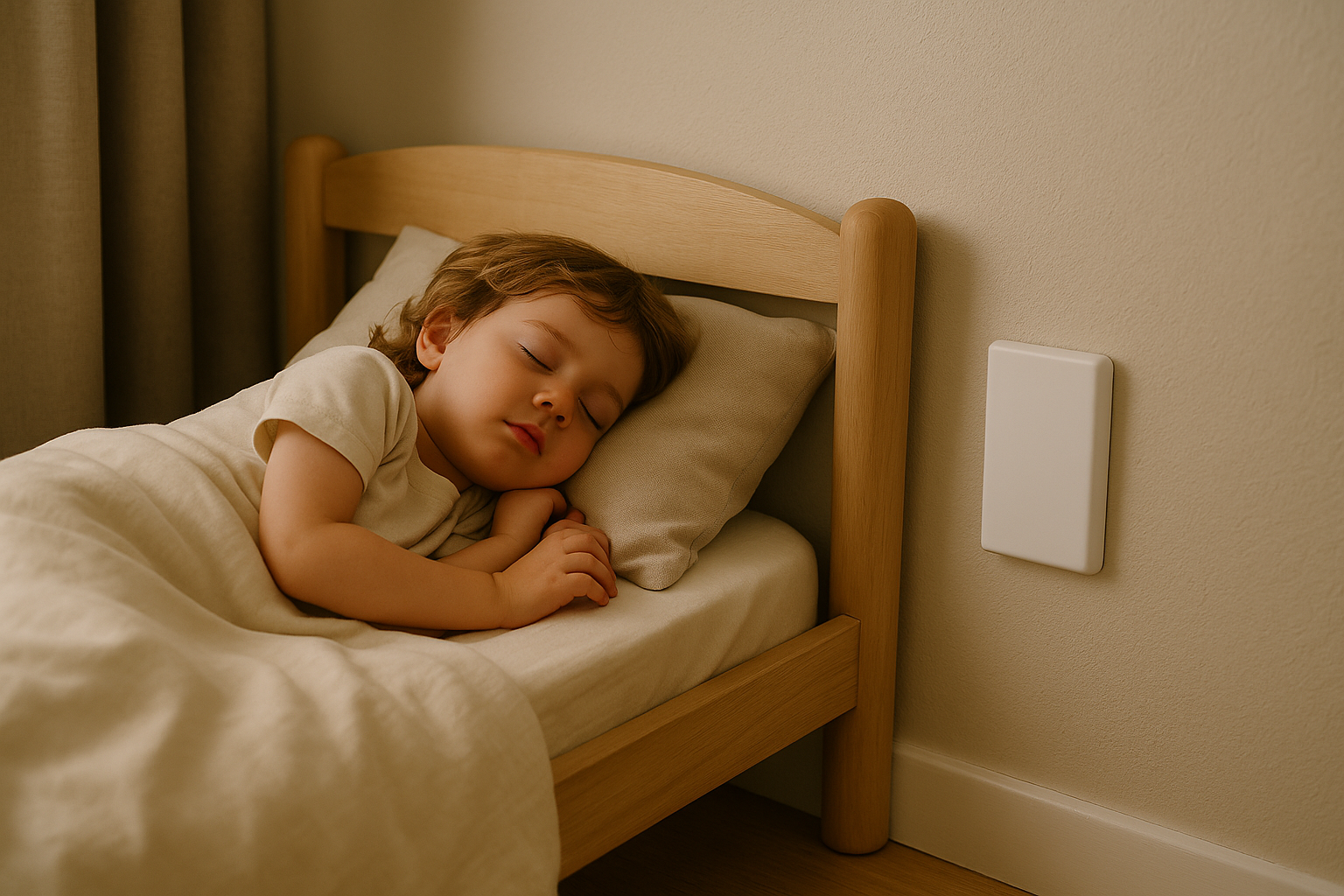
After image
Shield Your Rest, Improve Your Life
- Parents: Protect your children from EMF exposure in bedrooms.
- Workers: Shield outlets near your seat to foster a safer, healthier workspace.
- Health-Conscious Individuals: Ensure optimal wellness with consistent EMF protection for unused outlets.


